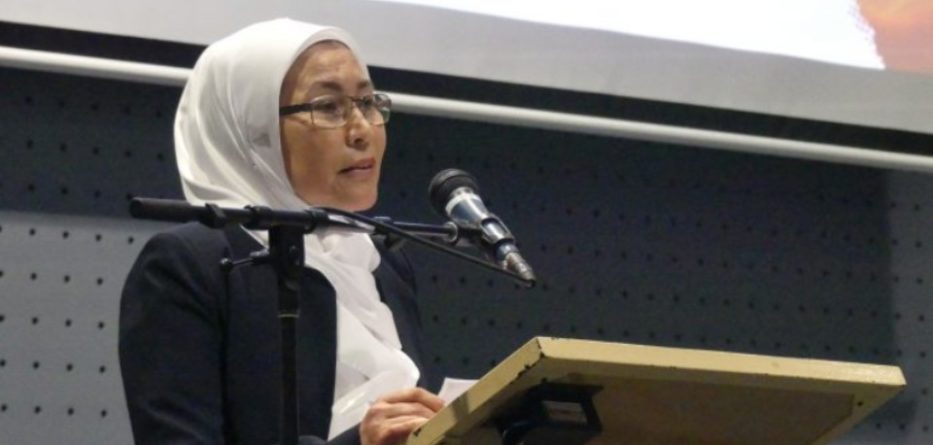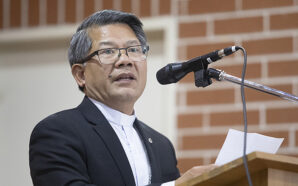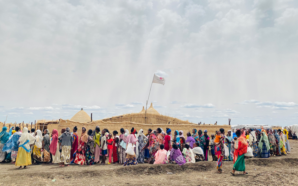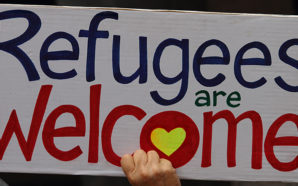I was born Hazara in Afghanistan. It is a place where my people suffer constant persecution and discrimination, and additionally, where women are considered second-class citizens. When I was two years old, my parents fled Afghanistan. We first arrived in Iraq and were subsequently given refugee status in Iran. Despite the challenges of growing up a foreigner in Iran, I completed my teaching degree, and also qualified to be a lawyer.
I lived and worked in Iran for 25 years, where I became a passionate advocate for the rights of refugee women. I established Persian and English literacy classes, training programs in computers and in handicrafts. Eventually, primary schools and high schools for Afghan children in Iran were established.
When a new government came to power in Afghanistan in 2001, I returned in 2003 to register the schools for Afghan refugees which I had established in Iran. Despite the change in government, the Taliban still had significant influence in many parts of the country. Domestic violence was common, but if women complained about their problems, it fell on deaf ears.
Seeing and hearing about this suffering was excruciating. I wanted to help. I returned to the province of my birth in Afghanistan and, together with the government, the United Nations, and other international NGOs, we established the Commission for the Rights of Women. I became the Director of the Department of Women’s Affairs for ten years.
We worked tirelessly to ensure that women’s voices were heard and so that they could gain access to legal aid and other essential services. We set up community centres to create avenues for communication and relationships between women, and where they could learn basic literally, cooking, and handicraft skills. We also established a park and gym for women to use.
My background as a Hazara and my work as a women’s rights advocate meant that I could not live safely in Afghanistan. I feared for my life and that of my children. In 2013, I came to Australia as a refugee.
‘At the height of the pandemic, when the Prime Minister told temporary migrants to return home, many Hazaras asked, “where can we go? We have no home outside of Australia. Australia is home”.’
Here, I had to start all over again. In 2018, decades after first training as a lawyer and teacher, I completed my High School Certificate at Bankstown Senior College and, with my two children, started university in 2019.
Despite finding safety, I could not turn my back on the Hazara people who are still suffering, both in Afghanistan and in Australia. Hazaras in Afghanistan have been subjected to the most violent and tragic crimes against humanity for centuries. Despite these atrocities, Hazaras have always practiced peace, obeying the rule of law, and a quiet life. We have also openly welcomed scientific education, democracy, and equal rights for women.
Yet to this day, my people continue to suffer at the hands of the Taliban. Indeed, on 11 May, 2021, the Taliban bombed the Sayyid al-Shuhada girls’ school in western Kabul killing more than 200 Hazara children. In November 2019, the Taliban invaded Oruzgan, Jaghori, Malestan, Kairan, and Sang Chark, all provinces with large Hazara populations, killing dozens and displacing thousands of women, children and men.
These kinds of unprovoked atrocities drive Hazaras to seek protection in countries such as Australia. Yet, here they face different challenges — many have faced years in detention or in the community, waiting for their claims for protection to be heard and processed. The uncertainty and prolonged separation from parents, children, grandparents, and siblings is profoundly crippling.
COVID-19 placed an additional burden on people in my community in Australia. So many lost jobs, and despite years of working and paying taxes, were denied access to Federal Government income support payments. Many Hazaras are educated but cannot find jobs. Others work long hours for below-minimum wages but say nothing because they are desperate to remain employed.
At the height of the pandemic, when the Prime Minister told temporary migrants to return home, many Hazaras asked, “Where can we go? We have no home outside of Australia. Australia is home.”
I feel very passionate about supporting my community members, and so many others in need to feel welcome, to feel safe, and to thrive in Australia. I have worked closely with Jesuit Refugee Service (JRS) Australia, the Sydney Alliance, Settlement Services International (SSI), and others to advocate for all recognised refugees to have access to permanent protection, and for the Government to ensure that Hazaras fearing for their safety in Afghanistan not to be returned. Australia also should not forget us, as it prepares to depart Afghanistan.
My deepest passion lies with furthering women’s rights. I have had the opportunity to contribute positively to the public policy debates on these issues through organisations such as JRS Australia. It is important that women from my communities and other emerging diasporas have platforms and voices that speak directly to decision-makers and power brokers in Australia. Civil society can help us access those platforms.
Nonetheless, the quiet, daily work on the ground of supporting those in most need continues, often informally, within the community. We support each other with language classes, IT and digital training, handicrafts, legal matters, workshops on rights, and basic needs such as food.
My current goal is to build resources and capacity to properly support Hazara women and women from other emerging diasporas to feel safe and thrive in Australia.
My dream is that our people and all other refugees can live freely and with permanent protection in this country so that they do not need to worry about returning to situations of harm again, and so that they can bring their families to safety too.
Published with thanks to Eureka Street.
This article highlights a story from the “Diocesan Journey… Walking with Refugees and People Seeking Protection”. Learn more about this initiative and follow our 14-week campaign from Refugee Week to World Day of Migrants and Refugees.








